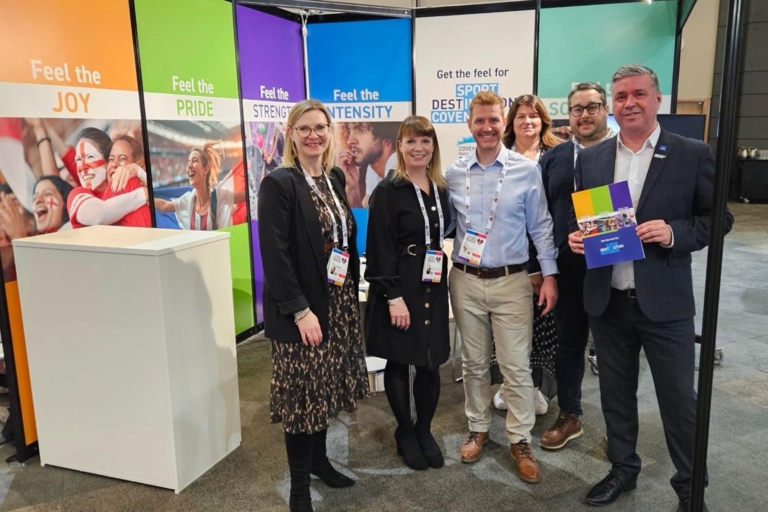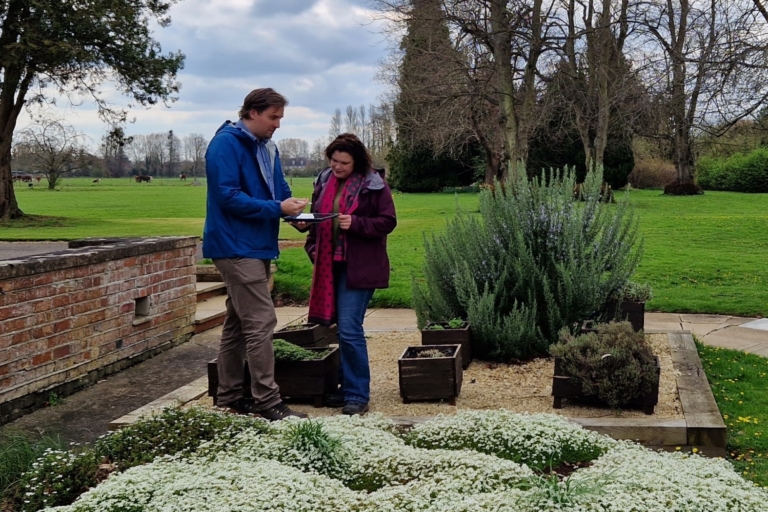South: Clarify and APS host breakfast briefing on rethinking client acquisition with Amanda Abernethy of Xerox

Clarify and the Association of Professional Sales (APS) are co-hosting a Breakfast Briefing at the IoD, Pall Mall, London on Wednesday November 11.
Amanda Abernethy, director of European Business Transformation LEO at Xerox Europe, will be presenting the strategy that her business has undertaken over the past three years to transform new client acquisition across Europe.
Her presentation will focus on how Xerox Europe turned business development from an afterthought into a strategic asset and in doing so, is creating higher growth, combating margin erosion in legacy offerings and is increasing sales productivity.
This event will be of interest to:
- Anyone who is actively involved in designing the structure of their sales organisation
- Anyone involved in sales transformation
- Anyone who holds responsibility for changing their business’s revenue profile
To register your interest and receive full event details contact [email protected]
Amanda Abernethy
As the European director for Business Transformation LEO at Xerox, Amanda Abernethy’s direct responsibilities focus on how best to serve the company’s clients globally and how the business can evolve its go-to-market strategy model.
Amanda’s career at Xerox spans 24 years having held a number of roles on the Xerox UK&I Board since 2000. These include responsibility for marketing & sales operations, the solutions & services business and the financial & professional services sector.
In advance of the breakfast briefing Clarify interviewed Abernethy to get her views on how the sales profession is changing, what the landscape for the next five years looks like and the sales culture she has helped create at Xerox. This is what she had to say:

In your opinion, to be truly successful in a sales career what attributes and experience are needed? What role does education play?
Motivation and drive are critical elements to make a success of a career in sales and the ability to be self-sufficient is key. Being able to manage your time and having high expectations of yourself are great qualities too, especially as sales is an achievement-based role. As such, setting individual targets and a desire to over-achieve are common personality traits. It’s no secret that sales people are financially driven and the real earning rewards come with surpassing targets.
A robust nature is also an important characteristic; a sales environment is typically pressurised and comes with a lot of responsibilities. It often involves speaking to buyers who are reluctant to be sold to; dealing with rejection is a quality that is best learned early on!
As regards the role of education it is important, but not necessarily unique to the sales industry. Today we are seeing a more mature workforce which is reflective of how the nature of sales is changing. In the USA, sales has for a long time been regarded as a destination profession and increasingly in the UK this recognition is becoming evident.
The sales role has changed considerably over the years. This is especially true of B2B sales; sales people are expected to be experts in their field and perform at a high level. As a result sales people entering the profession today will typically have a degree and/or some work experience demonstrating they can do the job plus a CV showing they have the ability to learn and follow a structured course.
How do you think that sales as a profession has changed over the last 10 years? And how have you personally responded?
Today the emphasis is very much focused on a consultative approach to selling, especially for B2B sales. Gone are the days of ‘Selling 101’ where you would go into a meeting with a potential buyer and ask about base-level company requirements; today it is all about knowledge and expertise.
Buyers have access to a significant amount of research both from the internet and social media platforms before they even engage. A sales person has to be a step or two ahead of this, taking the prospect to the next level and be able to give advice and guidance – and critically having the ability to differentiate its company proposition from that of its competitors.
As a result of this change, certainly at Xerox, we are witnessing a more mature sales force and one that stays in the profession longer. Procurement too as a profession has changed dramatically; today’s teams have high-level influence and need to navigate all aspects of a client environment from legal to financial to the lines of business.
It is essential to be able to adapt to these changes. Previously a sales person would act as a ‘lone ranger’ visiting and negotiating with clients alone. Today this has changed significantly; large clients expect senior leaders to be involved in the sales process and subsequent negotiations. Senior execs also have a responsibility to maintain relationships and their network. A noticeable difference today - and this is true of Xerox – is that there is less emphasis on hierarchy and much more multi-level selling activity in both buyer and selling organisations.
What do you consider to be the biggest challenges the sales profession will face over the next five years? What would you like to see happen to address these?
Adapting to the continually changing business environment and maintaining agility in the face of this continual change is one of the biggest challenges for the sales profession.
Historically, a strategy could be set for five years but now this is not the case; social culture, technology and how we work means our environment is constantly changing. Being open to this change, as well as embracing new ideas and initiatives is a great way to address these challenges.
Homeworking is increasingly popular, with Webex and video calls regularly replacing face-to-face meetings; sales people have to build relationships in different ways, they have to find the right approach for engaging with prospects. Technology gives sales people many more options for communicating with customers and as a result the sales process can sometimes progress quicker - even if the approach is less personal.
Describe the sales culture you have developed at Xerox. What lessons have you learned to ensure that the culture is diverse and inclusive?
At its heart, Xerox is a sales orientated organisation so by default it has a strong sales culture. The company structure has changed with our direct salesforce now focused on large clients and channel partners / and value added resellers (VARS) aligned to the SME market. As a result the direct sales force has reduced over time and so the sales culture has been, for want of a better word, diluted over recent years. That said, sales is a critical function at the heart of the organisation – it is a mature part of the Xerox business and a career that is respected for the value it creates for the organisation and its entrepreneurial spirit. The sales teams no longer just sell products; our business has evolved to include the provision of services and solutions that are tailored to the individual client and sector.
In terms of diversity, this is a core value in the Xerox world. To attract the best talent you need access to the widest pool of people possible. We foster a culture of inclusion and opportunity, which is supported by a number of employee-focused initiatives and tracked through measurable actions. Many of the forums and networks have been set up by employees and have been going for years.
We recently published our Global Citizen Report which shows how Xerox has continued to draw on the experience and creativity of a well-balanced, diverse workforce. In terms of women in the workplace, 48% of employees are women, 38% of women are in managerial positions and 27% of execs are female.
As a female board member, what advice would you give to other women who are trying to achieve leadership positions?
My advice to other females in business is to challenge yourself and do not limit your ambitions. In my experience, many women don’t aspire to the heights they are capable of.
It is also important for women to network – this is not always a skill that women find comes easily to them. But it is tremendously helpful to continually build relationships and the trick is to find a way which works best for them as individuals.
As a member of the Everywoman network, I strongly believe in the philosophy of helping and supporting other women who are coming up through the ranks – mentoring can play a large part in this especially early on in your career. At Xerox we have a mentoring programme including reverse mentoring and I mentor a number of individuals outside the company too, which I find very rewarding.












